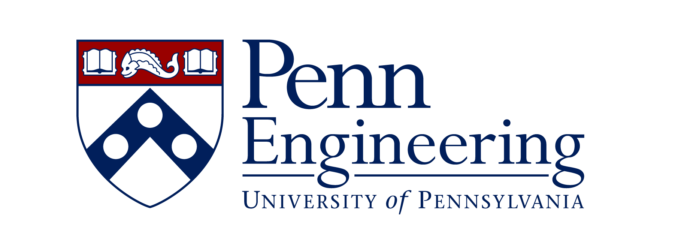The ten course units for the Data Science degree are divided into three categories:
(As long as the prerequisites for the courses are met, students can complete these courses in any sequence. Rules that Accelerated Masters students should abide by are listed here. Accelerated Masters students should ensure that they only enroll for graduate versions of courses once they matriculate in the DATS program.)
As a result of the ongoing reviews of the program, certain course offerings, program requirements, and course prerequisites are subject to change without notice. Where a change in program requirements is made while a student is enrolled, the student may elect to complete the program under the requirements in effect at the time of matriculation.
1. Foundations (two course units)
- Programming Languages & Techniques (PL): Programming Languages & Techniques (CIT 5900) or Introduction to Software Development (CIT 5910)
- Linear Algebra (CIS 5150) OR Computational Linear Algebra (Math 5130)
If students have taken these courses as part of another program, the requirement may be waived.
For Accelerated Masters, the programming requirement can be waived with successful completion of a B+ or higher in CIS 1200. The linear algebra requirement can be waived with a B+ or higher in Math 3120. The Stats requirement can be waived with a B+ or higher in Stat 4310. A student may also waive Foundation requirements with any other relevant course after getting department approval.
Please understand that CIS 1200, Math 3120, Stat 4310 or any other relevant undergraduate course can only be used to waive these requirements and CAN NOT be used as courses to count towards the master’s degree. Upon waiving these requirements, students must take Technical Electives or a course of their choice (subject to department approval) in lieu of them.
2. Core Requirements (three course units)
- Statistics for Data Science (ESE 5420)
- Big Data Analytics: Big Data Analytics (CIS 5450)
- Mining and Learning: Intro to Machine Learning (CIS 5190) or Machine Learning (CIS 5200) or Modern Data Mining (STAT 5710) or Data-driven Modeling and Probabilistic Scientific Computing (ENM 5310) or Data Mining: Learning from Massive Datasets (ESE 5450)
3. Technical & Depth Area Electives (five course units)
Students must choose courses from at least 3 of the buckets listed below.
BUCKETS for Technical & Depth Area Electives
Applications
- Brain-Computer Interfaces (BE 5210)
- Network Neuroscience (BE 5660)
- Advanced Methods and Health Applications in Machine Learning (BMIN 5210)
- Natural Language Processing for Health (BMIN 5220)
- Fundamentals of Computational Biology (CIS 5360)
- Biomedical Image Analysis (CIS 5370)
- Theoretical and Computational Neuroscience (PHYS 5850)
- Ethical Algorithm Design (CIS 5230)
- Econometrics I- Fundamentals (ECON 7050)
- Econometrics III: Advanced Techniques of Cross-Section Econometrics (ECON 7210)
- Econometrics IV: Advanced Techniques of Time-Series Econometrics (ECON 7220)
- Applied Probability Models in Marketing (MKTG 7760)
Methods
- Software Systems (CIS 5050)
- Databases and Information Systems (CIS 5500)
- Advanced Programming (CIS 5520)
- Internet and Web Systems (CIS 5550)
- Programming and Problem Solving (CIS 5590)
- Software Engineering (CIS 5730)
- Computer Systems Programming (CIT 5950)
- Data and Analysis for Marketing Decisions (MKTG 7120)
- Business Analytics (OIDD 6120) (limited to MBA students only)
- Forecasting Methods for Management (STAT 5350)
- Accelerated Regression Analysis (STAT 6210) (limited to MBA students only)
- Predictive Analytics for Business (STAT 7220)
- Sample Survey Methods (STAT 9200)
- Observational Studies (STAT 9210)
- Modern Regression for the Social, Behavioral and Biological Science (STAT 9740)
- Artificial Intelligence (CIS 5210)
- Deep Learning for Data Science (CIS 5220)
- Computational Linguistics (CIS 5300)
- Machine Perception (CIS 5800)
- Computer Vision (CIS 5810)
- Advanced Topics in Machine Learning (CIS 6200)
- Theory of Machine Learning (CIS 6250)
- Advanced Topics in Natural Language Processing (CIS 6300)
- Advanced Topics in Machine Perception (CIS 6800)
- Graph Neural Networks (ESE 5140)
- Principles of Deep Learning (ESE 5460)
- Learning in Robotics (ESE 6500)
- Modern Data Mining (STAT 5710)
- Advanced Linear Algebra (AMCS 5141)
- Algorithms (CIS 5020)
- Computational Learning Theory (CIS 6250)
- Randomized Algorithms (CIS 6770)
- Algorithms & Computation (CIT 5960)
- Numerical Methods (ENM 5020)
- Data-driven Modeling and Probabilistic Scientific Computing (ENM5310)
- Introduction to Optimization Theory (ESE 5060)
- Data Mining: Learning from Massive Datasets (ESE 5450)
- Simulation Modeling and Analysis (ESE 5030)
- Convex Optimization (ESE 6050)
- Information Theory (ESE 6740)
- Stochastic Models (OIDD 9300)
- Statistical Methods 1 (STAT 5150)
- Bayesian Statistical Theory and Methods (STAT 9270)
Information re: Data Science (DATS) Minor can be accessed here
More Information
- Information re: Computer & Information Science courses and faculty can be accessed here
- Information re: Statistics courses and faculty can be accessed here
- Information re: Electrical & Systems Engineering courses and faculty can be accessed here
- Information re: Bio engineering courses and faculty can be accessed here
- Information re: Physics courses and faculty can be accessed here
- Information re: Economics courses and faculty can be accessed here
- Information re: Marketing courses and faculty can be accessed here
- Information re: all courses offered at the University of Pennsylvania can be accessed here
